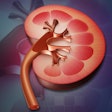Dear AuntMinnie Member,
Did yesterday's negative vote by a Medicare advisory panel derail the effort to secure Medicare reimbursement for CT lung cancer screening? It's too early to say, but the vote certainly doesn't help.
In case you missed it, the Medicare Evidence Development and Coverage Advisory Committee (MEDCAC) gave CT lung cancer screening low marks following a day of presentations and discussion about whether there was enough evidence to recommend the scans for Medicare reimbursement. MEDCAC panel members generally felt there were too many unanswered questions about the benefits and harms of CT lung screening, and they were especially concerned that there's only been one major trial supporting screening, albeit a blockbuster (the National Lung Screening Trial).
Read our article by International Editor Eric Barnes on yesterday's vote by clicking here.
Backers of CT screening believe the cause isn't lost, and they pointed out that there will be additional chances to provide input to MEDCAC before it makes a final recommendation in November to the U.S. Centers for Medicare and Medicaid Services (CMS), which determines Medicare reimbursement policy.
But the tone and substance of yesterday's discussion raises serious questions about whether CT lung screening is getting a fair shake. The MEDCAC panel didn't include any physicians with specialized training in medical imaging, and several statements made by panelists demonstrated a painful ignorance of how radiology works. And the fact that the panel was chaired by Dr. Rita Redberg -- perhaps one of medical imaging's most prominent critics -- makes yesterday's vote no surprise.
The prospect of implementing a new population-based screening program in an already overburdened healthcare system most likely has CMS administrators quaking in their boots. They appear to be setting the bar as high as possible -- let's hope CT screening's proponents are up to the task.
CT vs. x-ray for NSCLC
Is there a survival advantage to using CT in place of x-ray for monitoring patients with non-small cell lung cancer (NSCLC)? Maybe not, according to a study presented this week at the American Association for Thoracic Surgery annual meeting.
Researchers from Washington University School of Medicine hypothesized that CT would have obvious advantages over x-ray in terms of earlier time to diagnosis of recurrence, which would translate into improved survival. But it didn't turn out that way; instead, they saw few statistically significant differences between modalities in most of the criteria examined.
Read more by clicking here, or visit our Digital X-Ray Community at xray.auntminnie.com.
CCTA for coronary stenosis
Finally, visit our AuntMinnieEurope sister site for an article on how the use of contrast-enhanced coronary CT angiography (CCTA) could replace the need for additional tests when trying to determine the functional significance of coronary stenosis. Researchers from the Netherlands believe the technique could replace perfusion imaging using MRI or SPECT. Read more by clicking here, or go to www.auntminnieeurope.com.




















